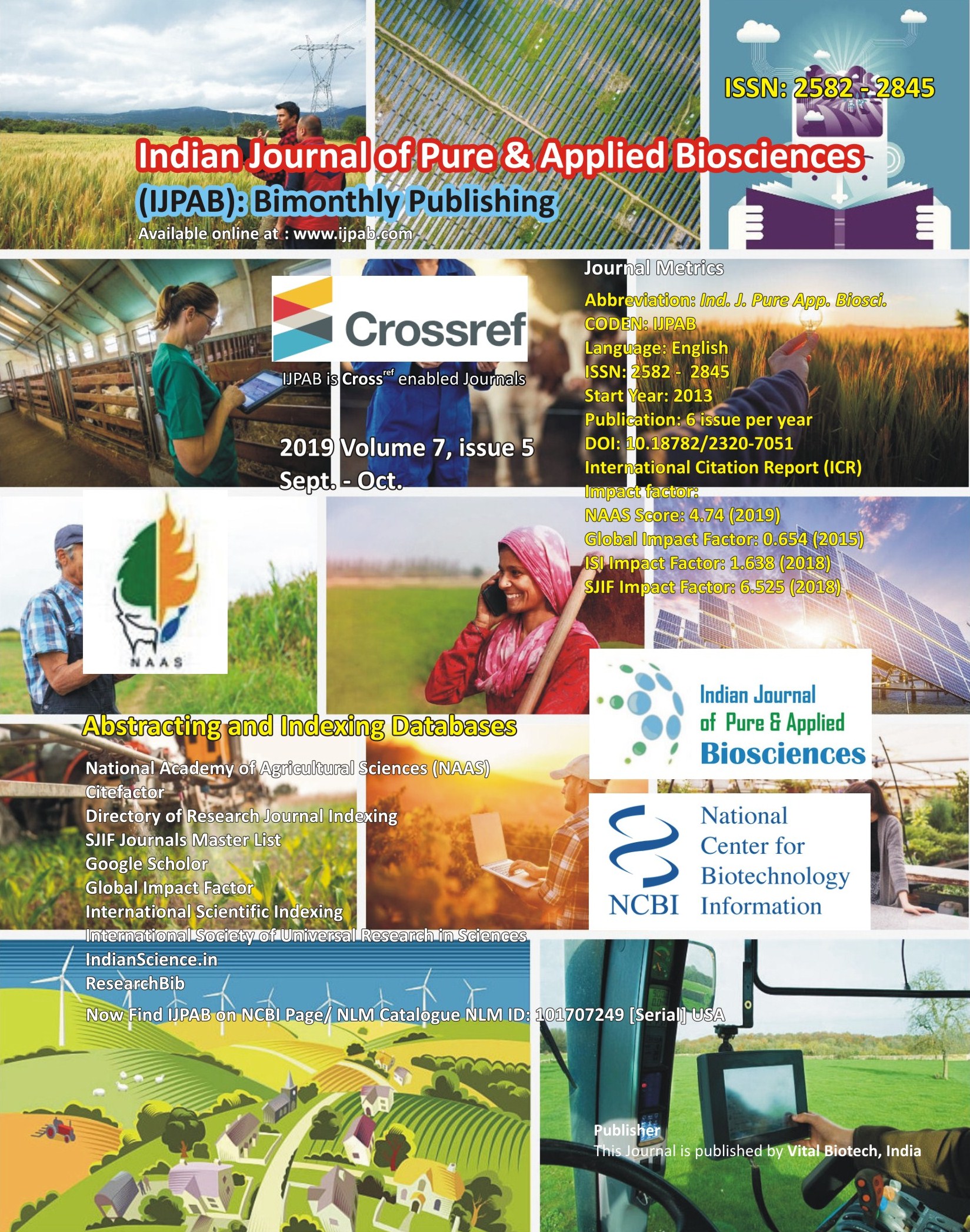
-
No. 772, Basant Vihar, Kota
Rajasthan-324009 India
-
Call Us On
+91 9784677044
-
Mail Us @
editor@ijpab.com
Indian Journal of Pure & Applied Biosciences (IJPAB)
Year : 2019, Volume : 7, Issue : 5
First page : (458) Last page : (470)
Article doi: : http://dx.doi.org/10.18782/2320-7051.7797
Effect of Extrusion Parameters on Physio-Chemical Properties of Extruded Products Prepares by Rice and Pigeon Pea Dal Broken Flour Blends
Ajeet Sarathe1*, Ashwani Duggal2 and Mohan Singh3
1Asst. Prof. & Head, Department of Agricultural Engineering, Faculty of Agri. Sci. & Tech.,
AKS University, Satna (M.P.), 485001, India
2Associate Professor & Head, Department of Food and Agriculture Engineering, MGCGV Chitrakoot (MP)
1Professor & Head, Department of Post Harvest Process & Food Engineering, College of Agricultural Engineering, JNKVV Jabalpur (M.P.), 482004
*Corresponding Author E-mail: ajeetsarathe@gmail.com
Received: 5.09.2019 | Revised: 3.10.2019 | Accepted: 8.10.2019
ABSTRACT
The traditional milling processing practices used in rice and pulses milling, yields significant amounts in the form of brokens from rice and dal mill industries. That brokens do not find appropriate market and are listed as losses of the milling industries, generally disposed off cheaply, whereas they have equally rich in the nutrition as comparable to whole grain. In developing countries protein malnutrition is a big issue for most of the population. The objective of this study was to develop a novel snack made with rice and pigeon pea dal brokens, yields from milling industries commonly considered as wastage, by using extrusion cooking technology. The effect of process parameters i.e. moisture content of feed and feed blend ration, as well as the operational parameters i.e. barrel temperature, die head temperature and screw speed of extruder on physio-chemical properties of extrudates were studied. A central composite rotatable design (CCRD) of response surface methodology was used to develop prediction model. Second order quadratic regression model was fitted in the variation. The significance was established at p≤ 0.05. The results suggested that the extrusion variables (i.e. process and operational parameters) were found significance influence on the extrudate physio-chemical properties as well as both independently and interactively. The feed blend ratio and extruder barrel temperature were observed to be the most significant factors that affected the extrudate properties. The best extrusion conditions was obtained at screw speed of 135 rpm, barrel temperature of 130 0C and die head temperature 190 0C based on moisture content, expansion ratio, bulk density, and protein content of the extruded products. This study demonstrated that extruded products could be prepared from blends of rice broken flour and pigeon pea dal broken flour under different ranges of extrusion conditions.
Keywords: Extrusion cooking, Textural properties, Hardness, Expansion ratio, Response surface
Full Text : PDF; Journal doi : http://dx.doi.org/10.18782
Cite this article: Sarathe, A., Duggal, A., & Singh, M., (2019). Effect of Extrusion Parameters on Physio-Chemical Properties of Extruded Products Prepares by Rice and Pigeon Pea Dal Broken Flour Blends, Ind. J. Pure App. Biosci. 7(5), 458-470. doi: http://dx.doi.org/10.18782/2320-7051.7797

